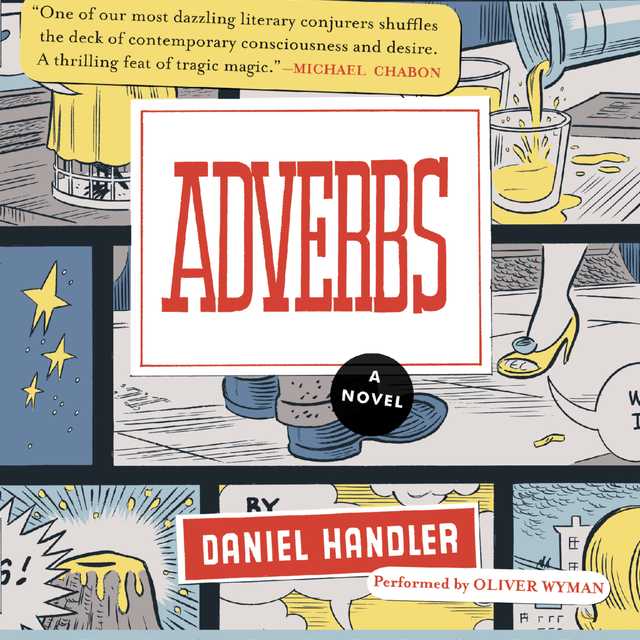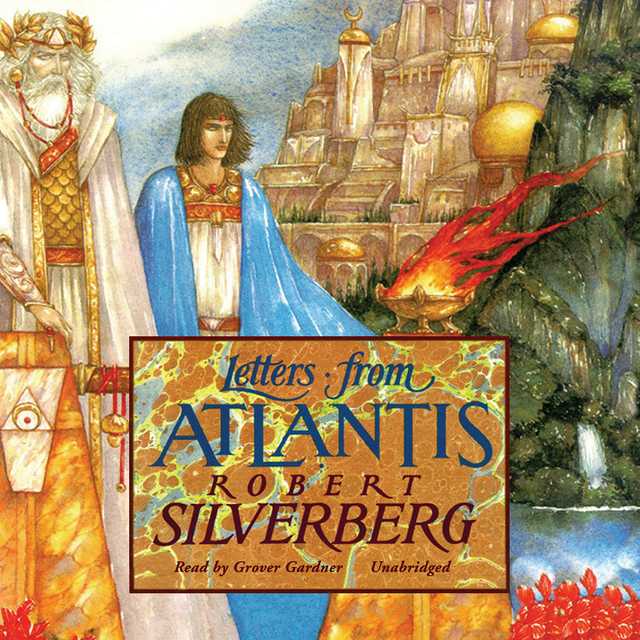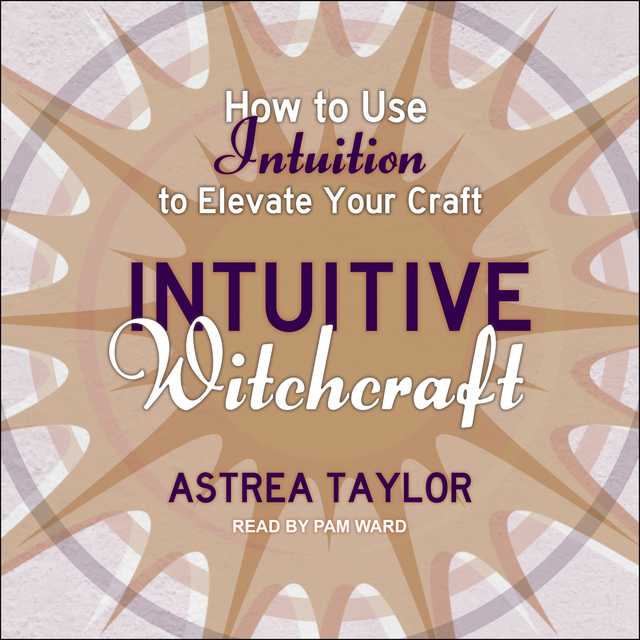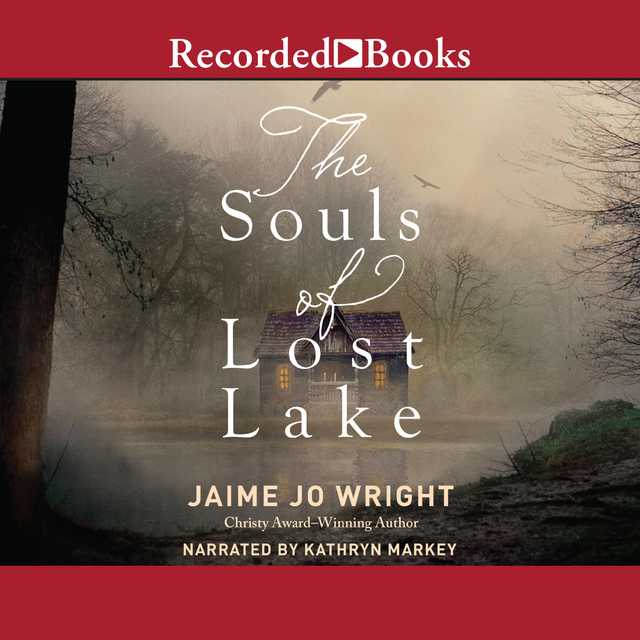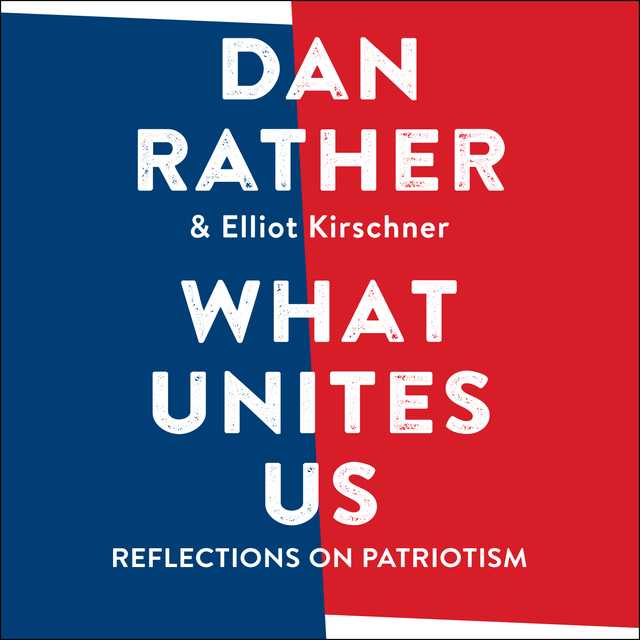Adverbs Audiobook Summary
Hello. I am Daniel Handler, the author of this book. Did you know that authors often write the summaries of their books that appear here on the package? You might want to think of that the next time you read something like, “A dazzling page-turner, this novel shows an internationally acclaimed storyteller at the height of his astonishing powers.”
Adverbs is a novel about love — a bunch of different people, in and out of different kinds of love. At the start of the novel, Andrea is in love with David — or maybe it’s Joe — who instead falls in love with Peter in a taxi. At the end of the novel, it’s Joe who’s in the taxi, falling in love with Andrea, although it might not be Andrea, and in any case it might not be the same Andrea, as Andrea is a very common name. So is Allison, who is married to Adrian in the middle of the novel, although in the middle of the ocean she considers a fling with Keith and also with Steve, whom she meets in an automobile, unless it’s not the same Allison who meets the Snow Queen in a casino, or the same Steve who meets Eddie in the forest.
It might sound confusing, but that’s love, and as the author — me — says, “It is not the nouns. The miracle is the adverbs, the way things are done.” A dazzling page-turner, this novel shows an internationally acclaimed storyteller at the height of his astonishing powers.
Performed by Oliver Wyman
Other Top Audiobooks
Adverbs Audiobook Narrator
Oliver Wyman is the narrator of Adverbs audiobook that was written by Daniel Handler
About the Author(s) of Adverbs
Daniel Handler is the author of Adverbs
More From the Same
- Author : Daniel Handler
- Why We Broke Up
- Publisher : HarperAudio
- Abraham
- American Gods [TV Tie-In]
- Dead Ringer
- House of Sand and Fog
- Prey
Adverbs Full Details
| Narrator | Oliver Wyman |
| Length | 7 hours 28 minutes |
| Author | Daniel Handler |
| Publisher | HarperAudio |
| Release date | April 11, 2006 |
| ISBN | 9780061154348 |
Additional info
The publisher of the Adverbs is HarperAudio. The imprint is HarperAudio. It is supplied by HarperAudio. The ISBN-13 is 9780061154348.
Global Availability
This book is only available in the United States.
Goodreads Reviews
Oriana
November 02, 2013
This is the kind of book that makes me want to go back and take all my 5-star ratings down to 4, so that giving this one 5 will mean more. This is the kind of book where, all while I was reading it, I was thinking about how I would read it again, more slowly, more thoughtfully, with more intense concentration. And so I did; I read it twice through, one after the other, and good fucking grief, it is so achingly good. The second time maybe a tiny little bit less so because I already knew so many of the good parts, but still, oh my god please read this book. He does this stunning thing where all of the chapters / stories sort of have the same metaphors and themes, but they are very vague. Like in almost each story there's a someone dirty and sad, carrying their shoes, who will fall in love or be fallen in love with. And there's magpies and volcanoes and the Snow Queen and taxis and other amazing sort-of recurrences, or maybe more like fragmented repetitions, because each time it's a little different. Anyway, although it's a novel, the chapters live on their own, and if I can't convince you to read the whole book, please please please will you just hurry up and read "Particularly," "Soundly," "Not Particularly," and "Often," because I think if you don't I will cry.
Ian
October 16, 2011
Back Flips and Party TricksI hated the first chapter of this novel, so much so that it took almost 200 pages for me to recover and trust Daniel Handler.Still, once it all started to come together, I did an amazing about face.By the end, I loved “Adverbs” and felt sad that I had to leave this crazy assortment of characters behind (or was it them who left me behind?).I didn't want the party to end.Across the Great DivideThe first chapter concerns an unnamed apparently heterosexual male character who leaves his partner, Andrea, catches a cab and immediately falls in love with the homophobic male cab driver, Peter.I couldn’t understand why Daniel Handler wanted to confront me with this character so early in the book, when we're just starting to get to know each other.I mean, who would be so totally self-deluded as to think you could instantaneously fall in love with an unsuspecting character across both the sexuality divide and the passenger’s seat?What prospects of success could this character (or indeed, this novel) have after an opening gambit like that?At First SightWas Handler being homophobic? I don’t think so. Certainly, there was no hint of homophobia in the rest of the book. So it’s quite possible that he was just making the point that many of us can (or believe we can) fall in love this instantaneously (incidentally, the name of the chapter), that we can experience love at first sight.Indeed, many of us sustain ourselves with the hope that one day it might happen to us, and that it will involve somersaults and other party, if not circus, tricks (even though, as Handler points out, there is no more impossible task than “falling in love in a nightclub”).So this novel provided me with a valuable lesson in my ongoing literary sex education.Don't hurry the author.This early in a book, they might just be engaging in foreplay.Give them time. They might grow on you. You might get in the mood. You might like it.Sometimes, you can't judge a book by its lover.To Boldly Go Where No Grammarian Has Gone BeforeAnother reason for my skepticism was the structure of the novel.It consists of 17 chapters, each of which is headed by an adverb.Most of us are taught to eschew adverbs in writing.Here, Handler has won and asserted the freedom, not just to use them, but to bring them forward and upfront, if that’s not too adverbial.In Which the Author Proceeds Listily...My initial gripe was that they’re not a particularly inspiring choice of adverbs, at least superficially (which wasn't on the list).I don’t think any (or many) of them would be on my (or perhaps even your) list of favourite adverbs on which to base a novel.Here is Handler’s list:"..., immediately, obviously, arguably, particularly, briefly, soundly, frigidly , collectively, symbolically , clearly, naturally , wrongly, truly , not particularly, often , barely, judgmentally , ..."...When He Could Have Proceeded LustilyWhere are the adverbs you can get excited about, like these examples that I have chosen randomly (you might have ones that are better or otherly): "..., suddenly, strangely, wonderfully, amusingly, tantalizingly, wholeheartedly, equally, madly, unconditionally, courageously, gently, secretively, quietly, noisily, gracefully, adoringly, pathetically, sweetly, heavenly, ..."But then, these examples are probably just the adverbs that we have been counselled to eschew.Something They Don't Teach You in Grammar SchoolSo what did Daniel Handler have in mind?Why did he choose such a neutral, neutered, sexless bunch of adverbs?How did he plan to handle his subject matter?How did he plan to seduce us with such words?How did he plan to give us full body massages using these words as his hands?How could he tickle our fancy using these words as feathers?Impossible.Or so I thought.Love Traversed AdverballyThese words mean almost nothing by themselves.Without more, they are just adverbs.Handler’s trick is to recognise that his recipe required one more ingredient.Step 2: Just add verbs. Adverbs can't pleasure us alone.They need a verb to qualify. They need a word they can relate to.And the word is Love.Love Probed Facetiously Love is a diamond and each chapter explores a different facet through the eyes of different beholders.There is some contention as to whether the book is really a novel or a collection of short stories.However, the chapters are not discrete in the sense that they have no relation to each other.Daniel Handler adds detail, chapter by chapter, so that meaning and understanding accumulate over the course of time, like a magpie assembles its nest, or photos add up to a photo album, or songs with similar themes add up to a concept album.Characters, or at least names, from one chapter turn up in later chapters.We learn new things on the way, constantly revising our opinions and speculating about the destiny of the characters.So there is a cumulative wisdom at work, which unites the chapters into a novel of sorts.Do You Believe in Miracles?Everybody in the novel strives for love.If we are lucky, love will touch and enliven us.If we do nothing, we die.It's a struggle of Sisyphusian proportions. Life is short, time conspires against us.We live on fault lines.There are catastrophes occurring all around us.We can also be distracted by petty troubles and worries, the detritus of past relationships that hang around to haunt us.We are mad not to seek out and seize the opportunity for love while we can:"What are we thinking? A volcano could destroy this town tomorrow, or guys with guns. Or both. Of course there’s going to be another catastrophe.”The Magic Bus that Takes Me to YouThe novel is not so much a hero’s journey, as a trip on a love bus, perhaps a shortbus.Each member of the ensemble cast departs from their past, probes around while looking for love, and arrives at their own different version of the destination they aspire to.Ultimately, with "Adverbs", Daniel Handler has lovingly crafted "A Series of Fortunate Events" for our delectation and inspiration. Hitching a Ride with a Cab DriverFor each of us, there's a different way to find love.And how we go about it can influence our prospects of success.We must make choices on our journey: "They say love’s like a bus, and if you wait long enough another one will come along, but not in this place where the buses are slow and most of the cute ones are gay. "‘I could take the bus,’ Joe said out loud, ‘but a taxi is better...’”So in the last chapter this particular Joe chooses a taxi to fast track him on the next phase of his journey, wishing and hoping the miracle of love will bless him:"Love is a preference, and Joe found one as he was summoned to do. "He found the love story he preferred, although he didn’t render this judgment officially until three years later when he and this cabdriver right here [Andrea] lay laughing and naked over how giddy he was during the miracle, during the blatant afternoon they met.”I Never Metafiction I Didn’t LikeIt would be remiss not to mention the sense of humour that winds through the novel.At first, I thought I detected a cruelty, a sourness, a bitterness that seemed to be working on a sublemonal level, the occasional lemony snicker.In retrospect, I think I was wrong.I rushed to judgment, when I should have been patient.The characters are diverse, but Daniel Handler loves them and their quest for love equally.He likens love to diamonds and lovers to birds (specifically magpies) “looking for shiny things and carrying them around in their beaks”.He deftly and humorously works real books about magpies [they are described as “attractive, artful and aggressive”] and a diamond ring [which is lost in his work and found in the other, real book] into his own work.He locates his own bird tale in another bird's nest, he places his diamonds in another jeweller's setting.He co-opts a whole world of fairy tales, fact and fiction into his own story.In Which Our Lovers Arrive, Eventually...Within his fictional ecosystem, “it is not the diamonds or the birds, the people or the potatoes [that are the miracles]; it is the adverbs, the way things are done. It is the way love gets done despite every catastrophe.”Finding love is a miracle, the stuff of fairy tales, a legendary achievement, though not everybody experiences their own miracle:"It can’t happen to everyone – as in life, some people will be killed off before they get something shiny, and some of them will screw it up and others will just end up with the wrong kind of bird – but some of them will arrive at love."Surely somebody will arrive, in a taxi perhaps, attractively, artfully, aggressively, or any other way it is done.”And so it is that at the end of the book, Andrea takes Joe to his destination, stops the cab and announces, “You’ve arrived.”He has come a long way for love....And the Reader Nods, AgreeablyThe significance of the novel is not necessarily that they found love (the verbs), or that love happened to Andrea and Joe (the nouns), the significance is how it happened to them.In Daniel Handler’s grammar of love, it’s the adverbs that make the difference.He proved his point attractively, artfully, and aggressively.By the end of the novel, I agreed with him. Wholeheartedly.
Brent
October 03, 2007
I've never read Handler's kid stuff but Adverbs did make me feel young again, if you don't mind that dust-smudged cliche. Not that I'm old even. And I certainly don't yearn for a lost childhood. Adverbs, the novel, or rather Adverbs: A Novel, made English over for me again, for the little while I was inside it. I had that giddy feeling I remember from my toddling times after reading my first "grown-ups" book -- that is, my first book without pictures. I don't know what that book was but it doesn't matter. It's the feeling that's important, that twang of wonder. And I have to say with some chagrin, because it makes me sound sentimental (or simply mental), but this book gave me the grins, like one of those drugs plucked from under forest ferns I haven't taken since high school. I felt like a fool while reading this book. The kind of fool that people point too and say: "That idiot must be the luckiest man alive."
MJ
April 06, 2011
Adverbs has a twisty, clever authorial voice, all-knowing and wise like the best omniscient narrators, which doesn’t really deviate from its essential Handlerness, despite inhabiting the emotional realm of his lovesick hipster personnel. But Handler handles words like a panhandler panhandles handles, or a handler handles hands: deftly, with aplomb.Like Watch Your Mouth, Handler uses recurring images, phrases, motifs, characters, spooling them through his stylish prose with its sardonic Sorrentino metacomment, its wily Nabokovian impatience, its Eggersian whimsy. Each chapter corresponds to one particular adverb, but it’s irrelevant really, as the star here is the style, and the style succeeds strikingly well at depicting the yearnings and maimings of love. And they’re endlessly funny.
Katie
December 07, 2007
David Handler is brilliant. This book compiles a bunch of stories involving characters who are intimately or barely connected to each other. Each chapter is a short story but the characters become so intertwined that it feels like a novel. The theme of this book? Love, love, and more love. But it aint what you think. This isn't a cheesy and cliche book about the heart to heart, folks. This is a book about every kind of love, from the obvious to the mysterious. I think that when I am done reading this book, I will read this book. Again. Lovingly, excitedly, and satisfyingly.
Kim
June 21, 2012
What is love? The song suggests that ‘oh baby don’t hurt me’ so does that mean is love about pain? I think that this is probably not the impression you want to give… unless you are into that sort of thing, which most women 15-65 seem to be if this is so popular. Love is… Well, when I was young, I used to think that this represented love. [image error]I’m not sure that that is so healthy either, but I had a ton of them.. they were my ‘go to’ I guess… When I google ‘Love is’ I get this comic strip… which I know that I’ve run into before but always brushed off for hokeyness. Now, are we so disillusioned by love that we need to reconstruct love into something like this?Daniel Handler (a.k.a Lemony Snicket, but don’t think of him as Lemony when you read this because it will throw you off kilter) has written a love story. It has 17 parts to it all described with adverbs. You can love immediately, obviously, arguably, particularly, briefly, soundly, frigidly, collectively, symbolically, clearly, naturally, wrongly, truly, not particularly, often, barely and judgmentally. I could have done with maybe 13 or 14 but the reason this didn’t rate higher for me was that by 15 I was ready to be done with love. I didn’t care about love being often, bare or judgmental. The stories seem like separate entities until you start to notice characters drifting in and out and then you try to place them in the timeline, which is also something I don’t recommend doing because it will give you a headache. Just go with it. Take the ranting, the stream of consciousness, half-truths, and off the wall declarations. Take them and digest them and maybe follow it up with a Tanqueray and tonic because after some of these, you may need it.“They say when you’re really in love, the world becomes gossamer and gorgeous, but in my experience---the world gets grimy, and the love object is in stark relief from the surroundings. This is love, a pretty thing on an ugly street, and why wouldn’t you pick it up if it appeared in a cab?”“A butter bird is, butter shaped into the shape of a decorative bird, but the point is, why is there cruelty? Why do people ask other people to do impossible things? Why behave this way? Why is there mean, when there are better things than mean, love particularly?”“This is love, to sit with someone you’ve known forever in a place you’ve been meaning to go, and watching as their life happens to them until you stand up and it’s time to go. You don’t care about yours. Why should it change, the love you feel, no matter how death goes?”“This is love, the plain truth once you get inside. Like a peacock, we all show off with the plumage. Come in and watch us make it! But then it’s just the same story, sugar and spice all spun up. We’re all mostly salt water. Love is candy from a stranger, but it’s candy you’ve had before and it probably won’t kill you.”“Love is keeping that symbolic focus, each kiss crucial, each step a landmark. I could have read down a list of every important landmark in America and told you what they all stood for symbolically, what it meant if they were to be destroyed.”“You love once and then maybe not again. Not on a day like this. The rain, the rain, the rain. You can’t even hear it outside the window but still it’s a sad thing. Rain, the grade school teachers say, makes the trees and flowers grow, but we’re not trees and flowers, and so many grade school teachers are single.”So, this is love… and if I had to choose, I would say I like loving soundly, wrongly, and obviously best. And I love this.Whoa whoa whoa, oooh oooh Whoa whoa whoa, oooh oooh Oh baby, don't hurt meDon't hurt me no more (oooh, oooh)
Christopher
February 04, 2013
As if this book needed another review . . .Thousands of readers apparently either love or hate this book or feel something in between too. Love is like this. Sometimes it feels a lot like hate or something in between, and that's OK. Adverbs is a loosely knit chain of modifiers. Everything is so unrelated in its relatedness. And it's all about love . . . and people, people with similar names and a volcano or a man-made disaster, maybe. Some will see this absurd romp as the work of a genius; some will see it as the brilliant narrative meanderings of a loose-cannon writer. Yeah, and some will see it as tediously bothersome drivel. But why? Why not sit back and enjoy loose-cannon meandering romps? Loosen up. Why so tense? This is a very good question. I wildly found Adverbs wildly entertaining. I'm not sure I'd want to spend an evening with someone who didn't feel wildly about this book. Adverbs is post-apocalyptic and volcanic (obviously) metafiction about LOVE. Daniel Handler, bless him to Mars and back, takes chances and why shouldn't he? He brings stream-of-consciousness prose to a post-Woolf generation. And that's sexy.For all the romping hijinks and the meta-apocalyptic banter, Handler does come to conclusions about love. There are profound moments. There are also comic(book) moments. There are songs, there are Mikes and there are magpies. And, seriously, there are the most original and surprising similes. And seriously again: I LOVED this book. Love,Chris
Shin
September 05, 2020
you know that type of cartoon illustration where it's a full view of a park or city street and there's a bunch of people doing things and the closer you look the more intricate and amusing each part of the picture gets? that's what it's like reading this "novel". i put quotation marks because Adverbs is classified as a novel but in quite a different sense.the book is a collection of non-linear short circumstances with different characters (many of which share the same name and sometimes may actually be the same person) in each chapter (aptly named after an adverb) and through their curious and at times almost lowkey magical experiences #DanielHandler provides explications of what Love is. what i liked most here are his fresh, exciting ways of doing that. all of Love had been explored by so many literature at this point it's hard to find works that would do so in a different manner and would make you see love from an actually more unique perspective.Handler is a master of wordplay and just structuring amusing paragraphs. sometimes the attempts at humor may seem too much or too tongue-in-cheek but you'll trust him nonetheless because he's a very skillful writer overall and you know he won't let you down, unless you're looking for a more solid "story" with a solid beginning middle and end, because that's not what this is going for. i know the way i described it here makes it seem like a heavily overwhelming, complicated book but it's honestly not at all. his language is super casual yet it succeeds in leading you to (maybe) deep thoughts or will simply just make you smile at his lyrical choreographies on what our favorite feeling does to us and how we see each other.read this if you're into::* various definitions of love* word gymnastics and sentences that are fun to read aloud* looking for something different from your everyday YA-type, regular novel kinda thing
shellyindallas
March 30, 2008
I became interested in this book after reading a rave review by a user on this very website (Hey! It works!). I picked the book up yesterday and have already finished it. That never happens with me. Generally there at least 20 naps taken between covers. As you will see if you read any other reviews this "novel" is more a series of intertwined vignettes. All stories about love framed in chapters named after various adverbs: Immediately, Briefly, Obviously, Clearly, Naturally, etc. Also, if you've read other reviews, you'll see that there are people who have a problem with this. The sequences of events don't follow any sort of order, and characters who pop back into different chapters may or may not be recurring--they could just share the same name as a previous character. So it can get confusing and confusion, rightly so, frustrates some readers. I just chose to believe that if there weren't other obvious references to a previously mentioned character, than this was somebody new with the same name. Most experience, after all, is universal. And in the end, it doesn't matter, as Handler says in the book it's not about the people's names, or various recurring themes (like cocktails, magpies, volcanoes, and the Ice Queen)--it's about love and all the various shapes and forms that love takes in our lives. It's not cheesy, there are no tears to be shed (although it's not without its touching moments). It's clever, original, and Handler certainly (clearly, obviously, surely, blatantly,undoubtedly, and definitely--badump bump) has a way with words. Here's one of my favorite passages: This is love, saltwater taffy. Pretty much everybody has had some. Somebody offers it on a day when you have nothing to do, and most likely you'll take it and put it in your mouth. It unites us, saltwater taffy, but whose favorite is it? Who likes it best? Just about nobody. So why do we eat it? This love story is about this style of love, this sweet thing that exists unasked for, that everybody eats out of the same bag. But also it is about what it says on the shack. I was there myself, and the large sign said: COME IN AND WATCH US MAKE IT.
Jan
July 26, 2007
funny, wordsmithy, delightfully quirky. i like the occasionally intruding author's voice ("those are my wife's favorite cookies") in the lives of the characters -- kinda kundera-like in that way. the music references were fun, and i like the mixing of real bands and songs with made-up ones. but there was an authorial distance, a real arms-length narration the whole way through -- sometimes overly clever, snickety, let's have a looksee at what our hapless little characters are doing -- that prevented me from ever getting emotionally involved. i wanted handler to come out and play, but i got the feeling he was trying to hide in that voice. like, pay no attention to the man behind the curtain. and the overlapping narratives, the vaguely 9-11ey volcanic "event," the impromptu (mostly too cutesy) digressions on the nature of love... all that seemed a bit concocted. i didn't get the feeling that anyone in this book, including the author, had really suffered, ever.
Krystyn
October 05, 2008
One chapter is so good I actually read it aloud to someone. And that would be the chapter about Kick-Ass: The Movie.There are many moments of heartbreak in this book, lucidly described and totally breathtaking. There are other sections of the book that falter. But that may very well be because I am the sort of reader that is in the mood for heartbreak moments, and some of the other stuff just gets in the way.It's very clever, but don't let that necessarily stop you from reading it, see. You can take it slow. Read one chapter per day. See how much you remember about each person. Because at first it will seem like they're all disparate people, and this is just a series of vignettes, but that's not exactly what's happening.Sometimes a cab ride is just a cab ride. Sometimes a cab ride is how you get where you're going, and that can be the most exhilirating thing you've ever done.
Erika
February 08, 2014
Adverbs. Adverbs. Adverbs. If you pick this up and you happen to flip to a page and read for a moment you will fall in love and buy it. You will get home and sit down open to the first page and begin. You'll finish chapter after chapter not realizing something... That this book is much like life itself. We are constantly faced with people we meet once and will never see again or ever get to know, and that is okay. So do, pick it up and read this beauty in it's entirety. Read every word and suck them in. Then read it again. I think we all need to learn to love in the way Handler writes-we would be much happier people."This is love, to sit with someone you've known forever in a place you've been meaning to go, and watching as their life happens to them until you stand up and it's time to go."-Daniel Handler
James
May 24, 2009
If you know Daniel Handler's works, then it will come as no surprise to you, that this book kicks total ass. Those of you that aren't, should hop to it soon.The book it's self, much like the Magnetic Fields concept album "69 Love Songs" is a collection of short stories all about love. Love in various different forms. It follows various characters on different adventures, all centering around a possible Earth in Chicago.The most compelling part of this book is the amazingly witty writing, and interlocking narratives. Many characters make appearances, and reappearances throughout the different stories. Some times, different characters, share the same name. And you are never sure who they are.By the end of the book, you'll want to read it all over again, with pen and paper so you can chart the characters, and their relationships to each other. Or at least, I did.
Most Popular Audiobooks
Frequently asked questions
Listening to audiobooks not only easy, it is also very convenient. You can listen to audiobooks on almost every device. From your laptop to your smart phone or even a smart speaker like Apple HomePod or even Alexa. Here’s how you can get started listening to audiobooks.
- 1. Download your favorite audiobook app such as Speechify.
- 2. Sign up for an account.
- 3. Browse the library for the best audiobooks and select the first one for free
- 4. Download the audiobook file to your device
- 5. Open the Speechify audiobook app and select the audiobook you want to listen to.
- 6. Adjust the playback speed and other settings to your preference.
- 7. Press play and enjoy!
While you can listen to the bestsellers on almost any device, and preferences may vary, generally smart phones are offer the most convenience factor. You could be working out, grocery shopping, or even watching your dog in the dog park on a Saturday morning.
However, most audiobook apps work across multiple devices so you can pick up that riveting new Stephen King book you started at the dog park, back on your laptop when you get back home.
Speechify is one of the best apps for audiobooks. The pricing structure is the most competitive in the market and the app is easy to use. It features the best sellers and award winning authors. Listen to your favorite books or discover new ones and listen to real voice actors read to you. Getting started is easy, the first book is free.
Research showcasing the brain health benefits of reading on a regular basis is wide-ranging and undeniable. However, research comparing the benefits of reading vs listening is much more sparse. According to professor of psychology and author Dr. Kristen Willeumier, though, there is good reason to believe that the reading experience provided by audiobooks offers many of the same brain benefits as reading a physical book.
Audiobooks are recordings of books that are read aloud by a professional voice actor. The recordings are typically available for purchase and download in digital formats such as MP3, WMA, or AAC. They can also be streamed from online services like Speechify, Audible, AppleBooks, or Spotify.
You simply download the app onto your smart phone, create your account, and in Speechify, you can choose your first book, from our vast library of best-sellers and classics, to read for free.
Audiobooks, like real books can add up over time. Here’s where you can listen to audiobooks for free. Speechify let’s you read your first best seller for free. Apart from that, we have a vast selection of free audiobooks that you can enjoy. Get the same rich experience no matter if the book was free or not.
It depends. Yes, there are free audiobooks and paid audiobooks. Speechify offers a blend of both!
It varies. The easiest way depends on a few things. The app and service you use, which device, and platform. Speechify is the easiest way to listen to audiobooks. Downloading the app is quick. It is not a large app and does not eat up space on your iPhone or Android device.
Listening to audiobooks on your smart phone, with Speechify, is the easiest way to listen to audiobooks.

